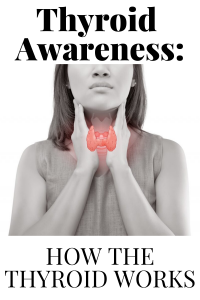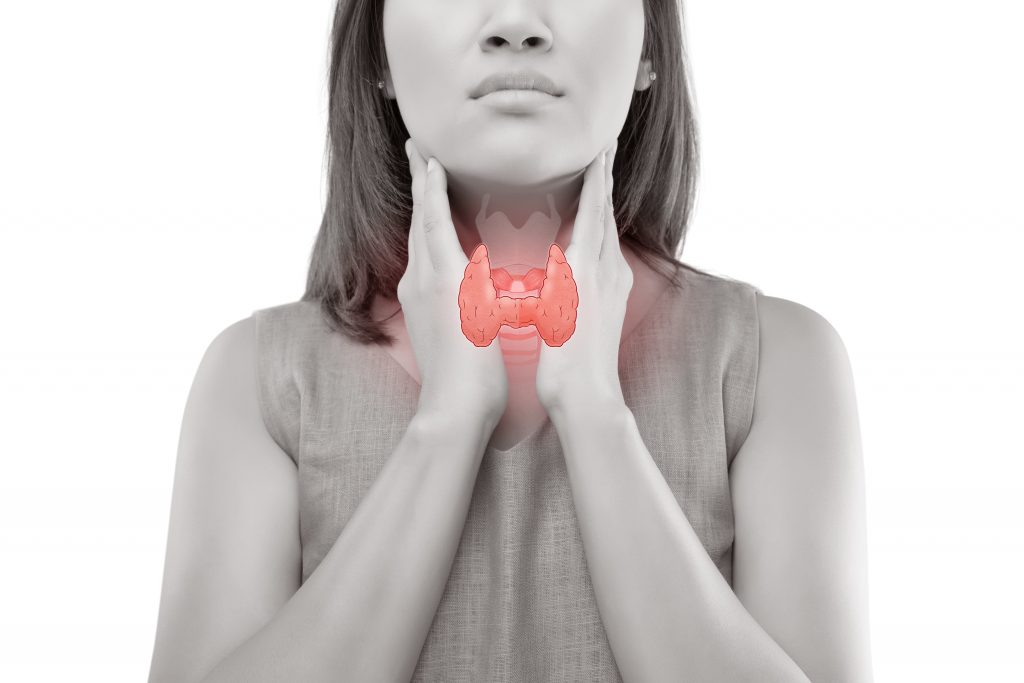What Does the Thyroid Gland Do?
January is thyroid awareness month. In order to help bring awareness to thyroid conditions, it’s important to know what a thyroid gland does. The thyroid is a small butterfly-shaped gland that lies at the base of the front of the neck just above the sternum. It is responsible for producing a hormone called thyroxine (T4) and is regulated by thyroid-stimulating hormone (TSH). TSH is produced in the brain’s pituitary gland based on thyroid hormone levels that the pituitary senses are available at the tissue/cellular level.
Thyroid hormone has a major impact on the metabolism of nearly all our body systems. The thyroxine (T4) must be converted to triiodothyronine (T3) through the liver and at the cellular level. The majority of active thyroid hormone in the body is the T3. When the T4 leaves the thyroid gland, it can travel down two different pathways. Ideally, most of it travels down the free T3 path. Think of this as the accelerator in a vehicle. Thyroxine can also travel down the reverse T3 pathway. This pathway is analogous to the brake pedal, which slows things down. Stress and adrenal glands play a role in deciding which pathway T4 travels.
Do You Struggle with the Following Symptoms?
- Fatigue
- Weight loss or gain
- Cold or heat intolerance
- Fast heart rate or palpitations
- Constipation or frequent stools
- Anxiety
- Depression
- Memory loss
- Racing thoughts
- Dry skin &/or hair
- Hair loss
- Poor libido
- Abnormal periods
- Infertility or recurrent miscarriages
If you experience any of these symptoms, you could be experiencing hypothyroidism (underactive thyroid) or hyperthyroidism (overactive thyroid). You should consult your healthcare provider to request a full laboratory panel to determine what exactly is happening with your thyroid. Continue reading below to find out what laboratory tests I recommend.
Autoimmune Thyroid Conditions and Laboratory Panels
Most thyroid conditions are autoimmune, which means the body’s immune system has malfunctioned and is destroying the thyroid gland. Hashimoto’s thyroiditis causes low thyroid symptoms and Grave’s disease causes overactive thyroid symptoms. Like any other autoimmune condition, the cause is three-pronged: there is a genetic predisposition, a triggering event, which is some kind of stress on the body like an illness or trauma, and intestinal hyperpermeability or “leaky gut.” Read more about autoimmune disorders here.
As you can see, there are many ways this system can malfunction and produce symptoms that can be debilitating for some. A medical professional must complete a thorough laboratory panel to get the whole story. This should include TSH, Free T3, Free T4, Reverse T3 (in some cases), and thyroid antibodies to detect autoimmune conditions. Some additional labs to run include a chemistry panel to determine liver function and your ferritin (iron) level because it is the bus that drives the T3 into the cells. And, some people also need adrenal gland function testing.
How Julian Healthcare Addresses Thyroid Health
At Julian Healthcare, I gather the evidence the patient has presented to me (their story), the physical exam findings, and the lab results and put together a customized plan for each individual. That may include nutrients that help the thyroid system function optimally, a prescription thyroid hormone, or lifestyle changes. Then I will determine if adrenal support is needed. If there is an autoimmune component, that will need to be addressed. If it is not, the body will continue to damage the gland, causing further decreased function.
Susan Julian, NP, IFMCP
Contact us today to schedule an appointment!


